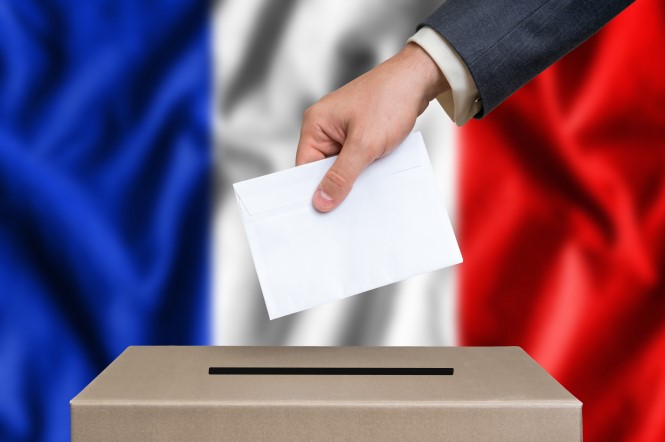With only less than four months to presidential elections, the question is: why is the identity politics the main concern of debates?
After the global pandemic crisis that turned the world upside down, French people face a decisive choice over their future. With only less than 4 months to presidential elections, the question is: why is the identity politics the main concern of debates?
In September this year, the French government announced it will substantially reduce the number of visas for Maghreb countries; for Algerian and Moroccans by half and also Tunisia by 30%. What does this move called by French government’s spokesman Gabriel Attal as “drastic” and “unprecedented” mean for the future political leadership of France?
Pessimism à la mode and far-right candidates play with it
Apart from the debate of whether or not the French government made the decision to attract far-right voters or it is mainly as part of its immigration policy, the question is where does this fear and xenophobia stand? Whereas it can be argued that the migrants have been externalized to the extent of an enemy figure, why it can actually happen? Is this the French ‘soul’ that has been lost, according to Éric Zemmour’s 2014 book The French Suicide? Even if he is rallying around French declinism, the question persists, why the French are susceptible of this political game at the first place? Do French scream over an existential crisis, the one that is projected by the gloomy and dystopian future; such as the Norwegian Expressionist artist Edvard Munch in his painting, The Scream. French existential despair over its non-locality is surely an instrument for openly anti-Muslim speeches of Éric Zemmour by providing a conservative withdrawal. However, this feeling of uncertainty is not anew.
What does France want?
When in 2018, the Emmanuel Macron’s government decided to raise fuel and crude oil prices, which eventually led to the Yellow West movement, he was not merely changing economic realities to make France more competitive (according to his neo-liberal supporters), or to put pressure on the working and middle-classes (according to his opponents). What was received on the French people side was the one of Viktor Hugo’s historical novel, Les Misérables.
How did it happen?
It must be noted that égalité for French, apart from an economic principle, remains a cultural principle too. And any damage to it will be perceived as an injury to the republic achievements of “liberty, equality, fraternity”. Although according to World Bank or Organisation for Economic Co-operation and Development (OECD) statistics, in terms of income inequality, France is among the very best and only few European countries overtake them such as Norway, French exaggeration as the champions of pessimism on economic situation has surprisingly even impacted their Happiness and Health Index. According to French National Institute of Statistics and Economic Studies in 2016, life expectancy in France fell for the first time after the Second World War. Nevertheless, inequality has been exacerbated under taxation policies on the ground too and not all can be explained through French tradition of Fin de siècle. Among the European countries, France imposes one of the highest taxation rates; tax- to-GDP ratio in France was 46.1% in 2017 and fuel tax raise left the gilets jaunes even much more exhausted. Another example would be the increase of one-month employment contracts in the last 18 years and a growing interest in gig economy.
France is not the best for sure, but it is also not at the end of the world. Macron’s policies contributed to a feeling among French and that is being unheard. The educational plan of Macron to include computer skills in the school’s curriculum and recruitment of 10 thousand teachers within three years would not solve the problem of French unemployment which is due to lack of skills related to digital age. What Macron did not consider in his policies was that a nation of novel-gazers à la Jean-Paul Sartre and culture would not easily welcome policies that, according to them, do not belong to them.
France stuck in no-man’s land; Fraternity will win out
Turn on the radio or watch television, in France it is all gloom, doom and depressive from the first morning headline till the end of the night. Politicians such as Éric Zemmour might have been successful in playing with people’s uncertainties. Reforms introduced by Macron’s policies as well might have also damaged the perception of égalité among the French. Despite all of that, only those who are after Red will survive. As Kieślowski’s Three Colours: Red put before us, only those who were for fraternity will survive the English Channel (in this case, upcoming French presidential elections!).




